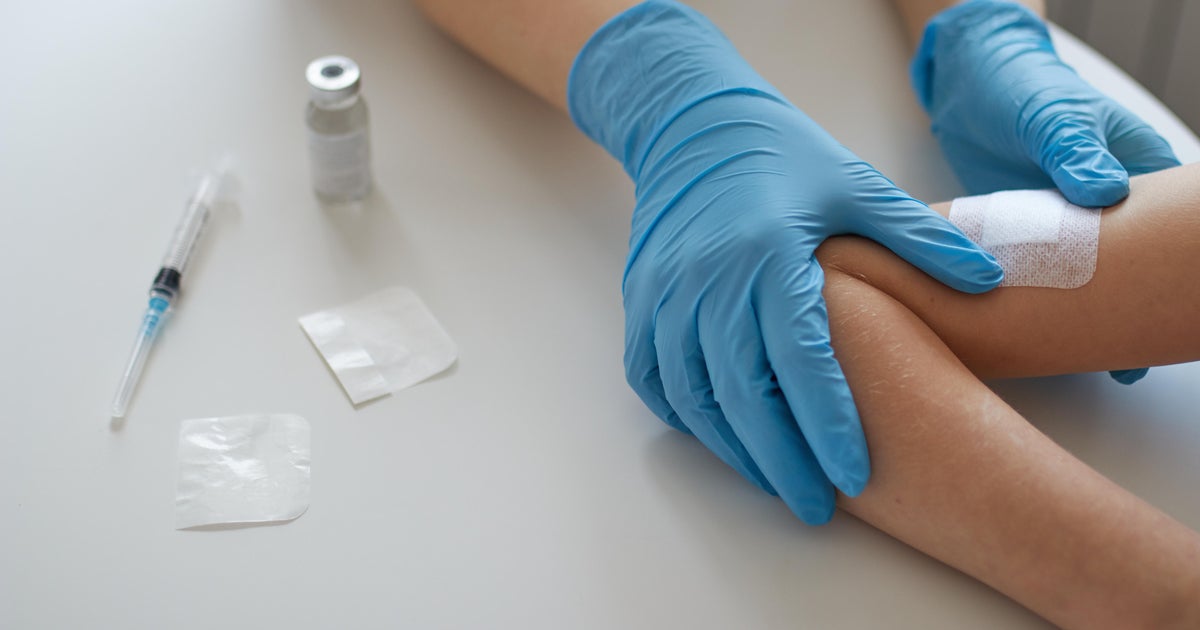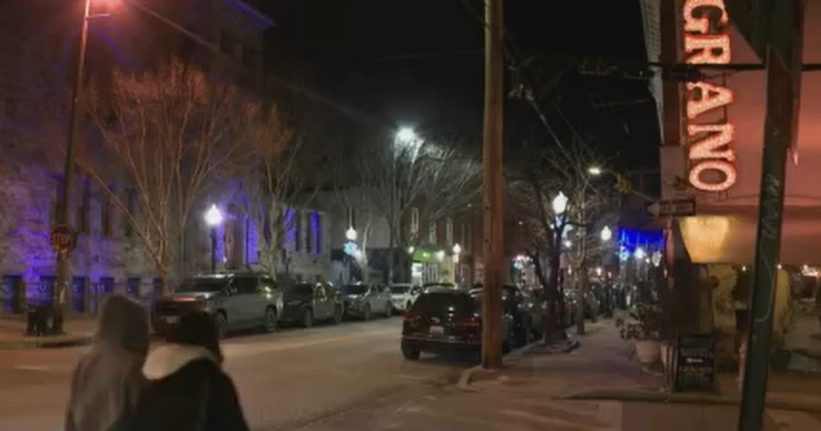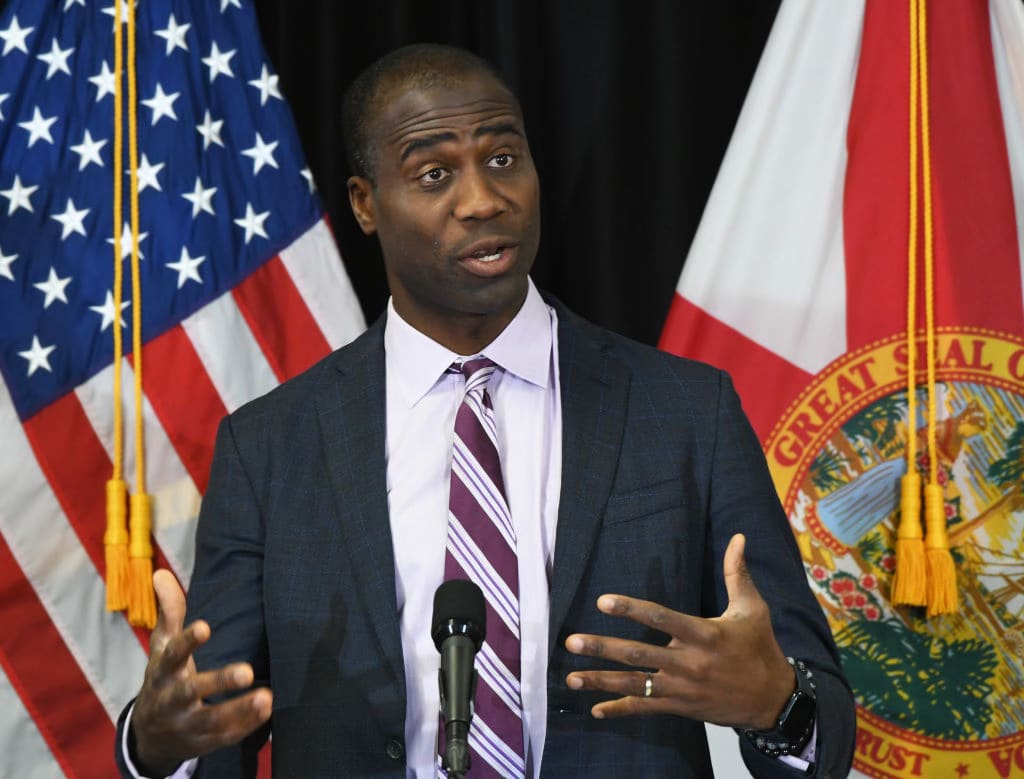Quality control issues force Johnson & Johnson to scrap doses of COVID-19 vaccine
Johnson & Johnson said Wednesday that a batch of COVID-19 vaccine made by a subcontractor can't be used because it didn't meet quality control standards. It was unclear how the problem would affect future deliveries of J&J's vaccine.
Dr. Anthony Fauci, head of the National Institute of Allergy and Infectious Diseases and President Biden's chief medical adviser, said on "CBS This Morning" Thursday that "about 15 million" doses were involved. CBS News was told the same thing by a source earlier.
The company said in a statement it was still planning to deliver 100 million doses by the end of June and was "aiming to deliver those doses by the end of May."
The issue arose at the Baltimore factory of Emergent BioSolutions. The factory is known as Bayview.
In a statement, J&J said its "quality control process identified one batch of drug substance that did not meet quality standards at Emergent Biosolutions, a site not yet authorized to manufacture drug substance for our COVID-19 vaccine. This batch was never advanced to the filling and finishing stages of our manufacturing process. This is an example of the rigorous quality control applied to each batch of drug substance."
The problem with the vaccine batch was first reported by The New York Times. The Food and Drug Administration said it was aware of the situation but declined further comment.
Emergent is one of about 10 companies that Johnson & Johnson is using to speed up manufacturing of its recently approved vaccine, J&J said. The Bayview factory where the tainted vaccine ingredient was found had not yet been approved by the FDA, so no vaccine in circulation is affected.
Emergent issued a statement, saying in part:
At Emergent, safety and quality are our top priorities. Our Bayview facility has been designed and validated to meet all current Good Manufacturing Practices. In addition, there are rigorous quality checks throughout our vaccine manufacturing processes, and through these checks a single batch of drug substance was identified that did not meet specifications and our rigorous quality standards. We isolated this batch and it will be disposed of properly.
Importantly, the quality control systems worked as designed to detect and isolate this single batch.
Discarding a batch of bulk drug substance, while disappointing, does occasionally happen during vaccine manufacturing, which is a complex and multi-step biological process.
Emergent's Baltimore-based vaccine factory has been ramping up for months to produce doses of both Johnson & Johnson and AstraZeneca's vaccine, as it awaited FDA approval.
Currently the FDA has only granted emergency use authorization to Johnson & Johnson's own facility in the Netherlands, which can ship the drug substance they manufacture to be bottled in the United States at Grand Rapids Aseptic Manufacturing's facility in Michigan before being released to the public.
During the regulator's normal review process of Emergent's site in Maryland, workers discovered some of the vaccine produced for Johnson & Johnson in February had been contaminated. Investigators currently suspect the batch may have been cross-contaminated from manufacturing of AstraZeneca's COVID-19 vaccine, which is based on a similar technology and is also being produced by Emergent.
Federal officials believe the error was a one-way mistake and likely an isolated incident, not affecting any other doses made for AstraZeneca or Johnson & Johnson. Testing of earlier batches produced by Emergent has turned up no red flags.
But it could be at least two weeks until all of the vaccine produced for Johnson & Johnson in Baltimore — including three lots manufactured after the discarded batch — are cleared by the ongoing investigation, which federal officials believe is the main remaining hurdle before Emergent's vaccine factory can be cleared by regulators.
Vaccine manufacturing is a complex process and discarded batches are not uncommon, especially in the early stages of production. However, errors invite extra scrutiny from both the company and regulators to trace how the lapse occurred and ensure the mistake won't be repeated.
Emergent's revenues skyrocketed during the Trump administration, jumping from around $523 million in 2015 to more than $1.5 billion in 2020. The company has invested heavily in lobbying the federal government, according to disclosure records, which show the company spent $3.6 million on lobbying in 2020 alone.
President Joe Biden has pledged to have enough vaccines for all U.S. adults by the end of May. The U.S. government has ordered enough two-dose shots from Pfizer and Moderna to vaccinate 200 million people to be delivered by late May, plus the 100 million single-dose shots from J&J.
A federal official said Wednesday evening the administration's goal can be met without additional J&J doses.
A J&J spokesman said earlier Wednesday that the company met the end-of-March goal, and the Centers for Disease Control and Prevention's online vaccine tracker showed J&J had provided about 6.8 million doses to the U.S. vaccine effort. J&J has been shipping finished vaccines from its factory in the Netherlands to the U.S.
J&J said it was putting more of its manufacturing and quality experts inside Emergent's factory to supervise production of the COVID-19 vaccine, a move meant to enable delivery of an additional 24 million vaccine doses through April.
J&J said it still expects to deliver more than 1 billion vaccine doses globally by the end of the year.
The J&J vaccine has been viewed as crucial for vaccination campaigns around the world, because only one shot is required and it can be shipped and stored at standard refrigeration temperatures, unlike some other vials that must be kept frozen. The company also has pledged to sell the vaccine without a profit, but only during the pandemic emergency.
The Associated Press reports that Emergent has been cited repeatedly by the Food and Drug Administration for problems such as poorly trained employees, cracked vials and mold around one of its facilities, according to records obtained by the AP through the Freedom of Information Act. The records cover inspections at Emergent facilities since 2017.
J&J locked arms with Emergent in April 2020, enlisting the lesser-known company to manufacture the vaccine J&J was developing with federal funding.
At the time, Emergent's Bayview facility wasn't scaled for making millions of doses of a potential COVID-19 vaccine, according to the FDA records that describe the plant as a contract testing laboratory that "did not manufacture products for distribution." Upgrades in technology and personnel were required before Bayview could begin making what's known as "drug substance" material for the vaccine, a two-month process during which the required biological cells are grown.
The FDA inspected Emergent's Bayview plant in April 2020, just as the agreement with J&J was being announced. The federal agency criticized the company for problems with its testing of a potential treatment for anthrax, according to the records obtained by the AP. The FDA's lead investigator cited the company for failing to train employees "in the particular operations they perform as part of their function and current good manufacturing practices."
On the same day, Johnson & Johnson, in a separate news release, heralded its partnership with Emergent as a step toward the pharmaceutical giant's goal of supplying more than 1 billion doses of the vaccine globally by the end of 2021.
Other problems cited by the FDA during the April 2020 inspection included failures by the Bayview plant "to ensure that electronically held data generated during analytical testing" of material "was protected from deletion or manipulation." The FDA's lead investigator, Marcellinus Dordunoo, wrote that Emergent hadn't investigated what he described as "data integrity concerns."
The inspection was the most recent in a series of critical reports from the FDA about Emergent, including one following a December 2017 inspection at a plant in Canton, Massachusetts, in which the FDA said the company hadn't corrected "continued low level mold and yeast isolates" found in the facility. Nearly a year later, agency investigators questioned why Emergent had "an unwritten policy of not conducting routine compliance audits" at a separate plant in Baltimore, known as Camden, where an anthrax vaccine is filled into vials.
–Alexander Tin contributed reporting.





